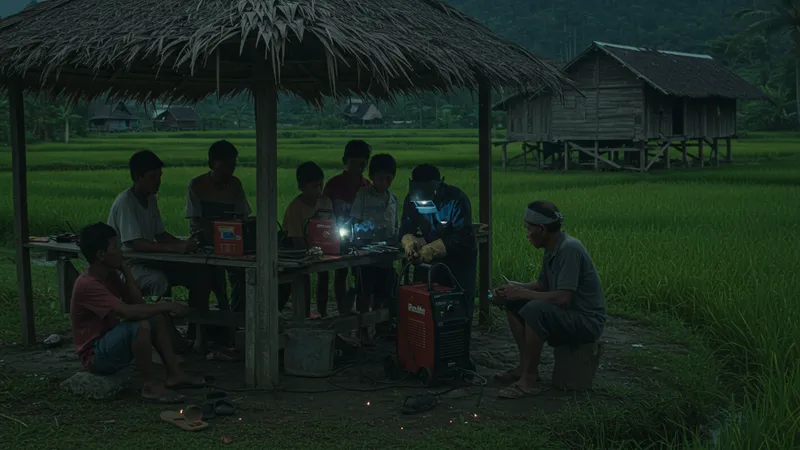
Why Are Indonesians Rushing To Buy Portable Welding Machines
Rural Empowerment Through Innovation
In the remote villages of Indonesia, portable welding machines are proving to be powerful tools of empowerment. Typically detached from mainstream economic activities, these communities are now part of a ripple effect bringing technology and opportunity to their doorstep. The introduction of welding machines has allowed locals to tap into new forms of income, diversifying their economic activities beyond traditional farming or fishing. Interestingly, this technological wave is bridging a digital divide, paving paths for learning and innovation. As villagers embrace these tools, a new culture of ingenuity and self-reliance emerges, promising to reshape rural livelihoods.

Educational workshops around these machines are becoming increasingly popular, assisting villagers in acquiring skills that were once inaccessible. Local organizations are stepping up, organizing training sessions that transform eager participants into proficient welders. The integration of such educational initiatives has a ripple effect, sparking interest in technological upskilling that extends beyond welding. However, the real challenge lies in adapting these skills to market needs, ensuring sustainable employment. Yet, these communities are demonstrating resilience and a willingness to evolve, overcoming barriers with surprising dexterity.
Furthermore, the environmental ramifications of these developments are intriguing. Communities that traditionally relied on environmentally taxing practices are shifting towards more sustainable and eco-friendly endeavors, significantly reducing their carbon footprint. This shift is gathering attention from environmentalists, sparking dialogue on the potential of tech-driven sustainability in rural areas. What started as simple entrepreneurship is now at the forefront of an environmental crusade, and it’s captivating audiences worldwide. But there’s a looming question: can these environmental gains be preserved as demand continues to grow?
Though the progress made is commendable, it’s not without challenges. The need for consistent electricity, quality tools, and sustainable financing models is critical in ensuring long-term success. Local governments and NGOs play a pivotal role, but their outreach and impact are still limited. Yet, there’s hope on the horizon. The potential integration of renewable energy technologies with these innovations suggests a future so promising that it warrants keeping a close eye on the developments. Will they unlock the true potential of these welding machines in rural Indonesia? The unfolding story might just redefine expectations…